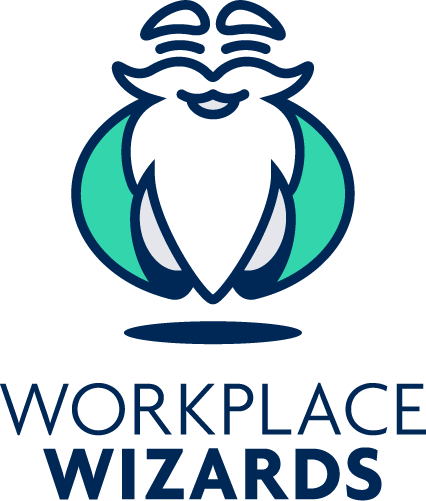On 1 July 2009, the Fair Work Act 2009 (Cth) (“FW Act”) commenced operation and fundamentally altered how enterprise bargaining agreements (“EBAs”) are created. The reforms heralded important changes to the way employers employ their staff, particularly the inability for employers to make new Australian Workplace Agreements (“AWAs”) and the removal of the distinction between union and non-union agreements.
After a successful negotiation process, managers may become stuck when it comes to setting up the enterprise bargaining agreement template. Therefore, the following serves as a useful guide of how you should structure your EBA, including the content it has to contain and, importantly, the sort of clauses employers (and employees and unions) are legally forbidden to include.
STRUCTURE
We recommend employers have an enterprise bargaining agreement template which follows the following broad structure:
Part 1 – Introductory terms such as contents, nominal expiry date, other mandatory content (see below) and references to things like how the agreement interacts with the Awards, the NES or discrete areas of the employer’s business etc.;
Part 2 – Pay, classifications, penalty rates and allowances paid and the hours of work required by the employees;
Part 3 – Various types of employee leave;
Part 4 – Ways the employment can end, such as Notice of Resignation and Termination, Redundancy and Serious Misconduct etc.
Part 5 – Safety, Policies and Procedures and other miscellaneous clauses such as Uniform.
KEY CLAUSES
To be approved by the Fair Work Commission (FWC), EBAs have certain ‘non‐negotiable’ terms that must be included, such as:
- a nominal expiry date;
- a Dispute Settlement Procedure – that requires the FWC or another independent person to settle disputes about any matters arising under the agreement and the National Employment Standards;
- individual flexibility arrangements that can be made between the employer and individual employees. Where an agreement is silent on this matter, a model term (that is set out in the FW Act’s accompanying regulations) will be deemed to be incorporated into the agreement; and
- consultation procedures with employees on major workplace change.
Secondly, an enterprise agreement can only contain clauses which are “matters pertaining”. Courts and Commissions in the past have found certain kinds of claims do not pertain to the employment relationship, such as clauses requiring an employer to make a donation to a political party, requiring an employer to only use certain suppliers or that outright prohibit engaging contractors.
The question of what is a “permitted matter”, is constantly evolving, but includes terms relating to:
- Conditions or requirements about employing casual employees or engaging labour hire or contractors sufficiently relating to employees’ job security (for example, an enterprise agreement term “contractors must not be engaged on terms and conditions that would undercut this agreement” would likely be acceptable);
- Casual employees converting to permanent employees after a set period of time; and
- Particular staffing levels (provided those terms are aimed at ensuring the health, safety and wellbeing of employees).
However, permitted matters capable of being included in an EBA are unlikely to include terms that:
- Contain a general prohibition on the employer engaging any labour hire, contractors or casual employees;
- Require an employer or employee covered by the EBA to make a donation to a political party, charity or trade union-nominated fund;
- Require an employer to source only products from a particular supplier or Australian made products (unless, potentially, such a term was directly related to employees’ ‘job security’);
- Require an employer to engage or not engage particular clients, customers or suppliers who had agreed to commit to certain employment, environmental or ethical standards (unless such a terms was directly related to employees’ health and safety); and
- Relate to corporate social responsibility (e.g. terms requiring an employer to participate in charity events or commit to climate change initiatives).
Formerly considered “prohibited content”, we have seen a return of a variety of union clauses being considered “permitted matters”, such as terms relating to:
- ‘union training leave’ and requirement for an employer to pay employees for leave for training conducted by a trade union;
- employees having paid time off to attend union meetings or participate in union activities;
- union involvement in dispute settlement procedures (even at the introductory level, before a manager and the employee have had a chance to attempt informal resolution); and
- unions promoting membership or having noticeboards in the workplace or otherwise providing information to employees.
WHAT HAPPENS WITH MATTERS THAT ARE ‘NOT PERTAINING’?
Matters that do not pertain to the employment relationship (or the relationship with the employees’ union as their representative) cannot be included in the enterprise agreement. Should they be approved by the FWC and then be found to be matters “not pertaining”, they will be considered void and unenforceable terms.
Further, negotiation in pursuit of inclusion of unlawful terms cannot be the subject of protected industrial action, and any industrial action carried out will not protected, and therefore not receive immunity from prosecution as a result of loss causes by the action.
NEED FURTHER HELP?
Workplace Wizards provides expert workplace relations, human resources, industrial relations, Workplace Health and Safety and workers’ compensation advice and support on demand and tailored to your business needs. We offer a complete range of employee management and workplace relations services.
For specialist assistance during the entire enterprise agreement bargaining process, support@workplacewizards.com.au




0 Comments Leave a comment
Comments are closed.